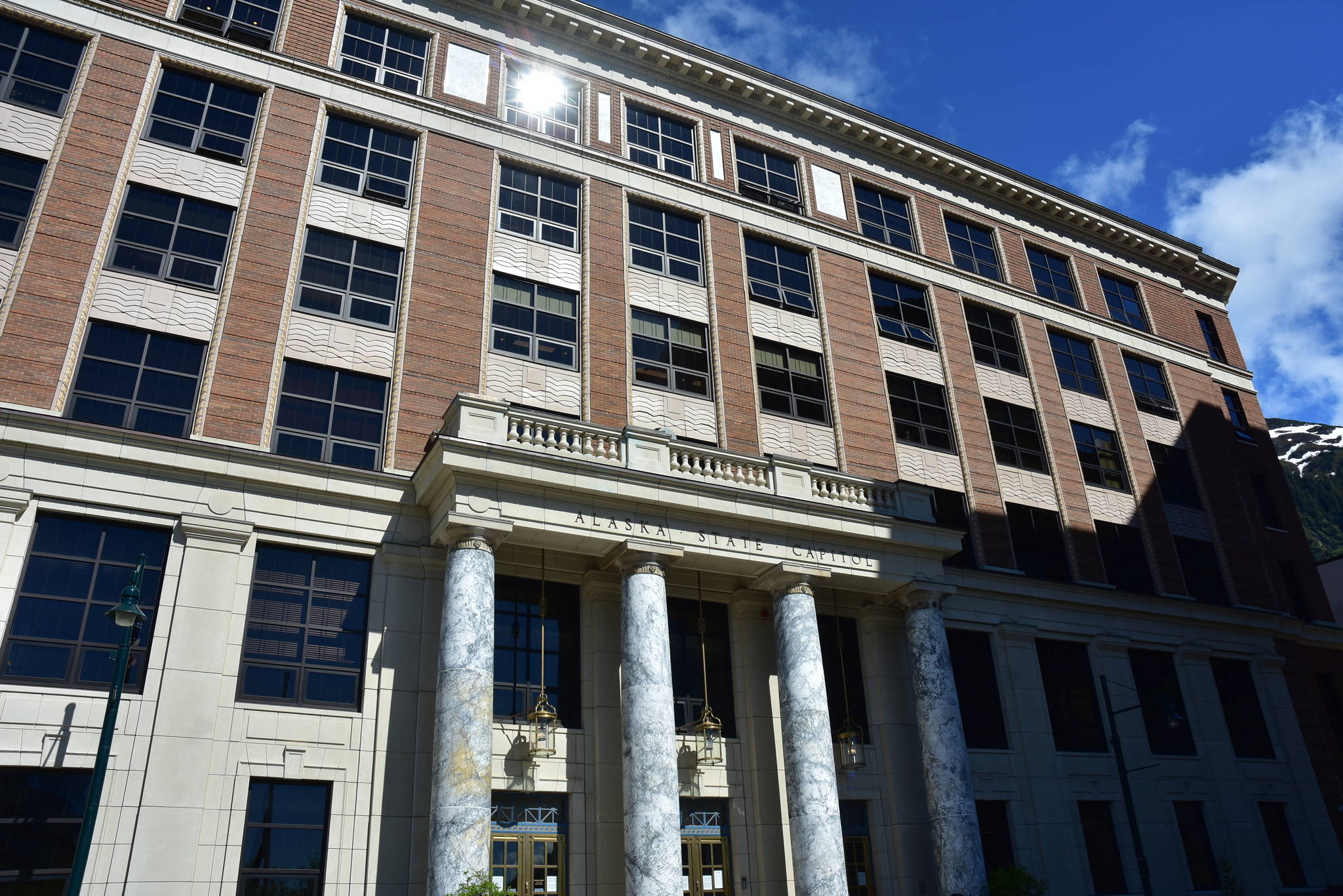Despite the ongoing special session, lawmakers were largely absent Monday from the Capitol building in Juneau.
The legislative calendar shows only two meetings scheduled for this week. Both the committee meetings are for members of the House of Representatives and are strictly informational.
“Negotiations are not happening with the intensity that I’d like them to,” said Sen. Jesse Kiehl, D-Juneau. “I’m always delighted to have my colleagues from all over the state here in Juneau, but they deserve to spend summer at home with their families.”
The bicameral conference committee negotiating the final version of the state’s budget finished its work on less divisive issues in the budget last week, committee chair Rep. Neal Foster, D-Nome, told the Empire last week, and talks would now turn to the more divisive issues. But the committee didn’t meet Monday and isn’t yet scheduled at all this week. The current special session ends June 19, and the state’s fiscal year ends at the end of the month.
In a phone call, Paul Labolle in Foster’s office said the committee hoped to begin negotiations on more controversial items such as the Alaska Permanent Fund dividend in the next few days. Labolle said that Foster has remained in Juneau, and the conference committee is making progress.
“It’s the (permanent fund dividend),” Kiehl said. “The controversy is really about the PFD.”
Lawmakers are deeply divided about the PFD even within their own parties. Many conservative lawmakers have backed away from demanding large dividends following an older statutory formula and have agreed to compromise on 50% of the money the state draws from the Earnings Reserve Account each year going to dividends.
[With nothing to vote on, many lawmakers head home]
But to do that and keep the state’s budget largely flat, lawmakers would have to break their own law passed just a few years ago. Lawmakers in 2018 voted to cap the state’s annual draw from the ERA at 5%. In order to pay a dividend under the proposed 50-50 formula, the state would have to exceed that limit this year.
But overdrawing from the ERA has staunch opponents, Kiehl included, among lawmakers in both parties. Kiehl said he believed there were enough votes in the Senate for a PFD of roughly $1,000, as opposed to the $2,300 appropriated in the version of the budget that passed the Senate.
Lawmakers have said they hope to pass a budget before the end of the special session, enough time, they say, for Gov. Mike Dunleavy to sign the bill into law. Employee contracts require notices to be sent out 10 days before the actual layoff, but Dunleavy’s administration has said if the Legislature passes a budget before June 19, the bill can be signed before those notices are sent out.
A state accounting mechanism known as the sweep requires a high vote threshold to reverse, and no caucus in the Legislature can guarantee enough votes to do that. Without a reverse sweep several state accounts, including the Alaska Performance Scholarship Fund and the Power Cost Equalization Fund, will remain empty.
“Waiting for the pressure of a deadline can move people on the little stuff but not the big stuff,” Kiehl said. “It’s still happening; it’s not happening as intensely as it needs to, but it’s happening.”
Contact reporter Peter Segall at psegall@juneauempire.com. Follow him on Twitter at @SegallJnuEmpire.

